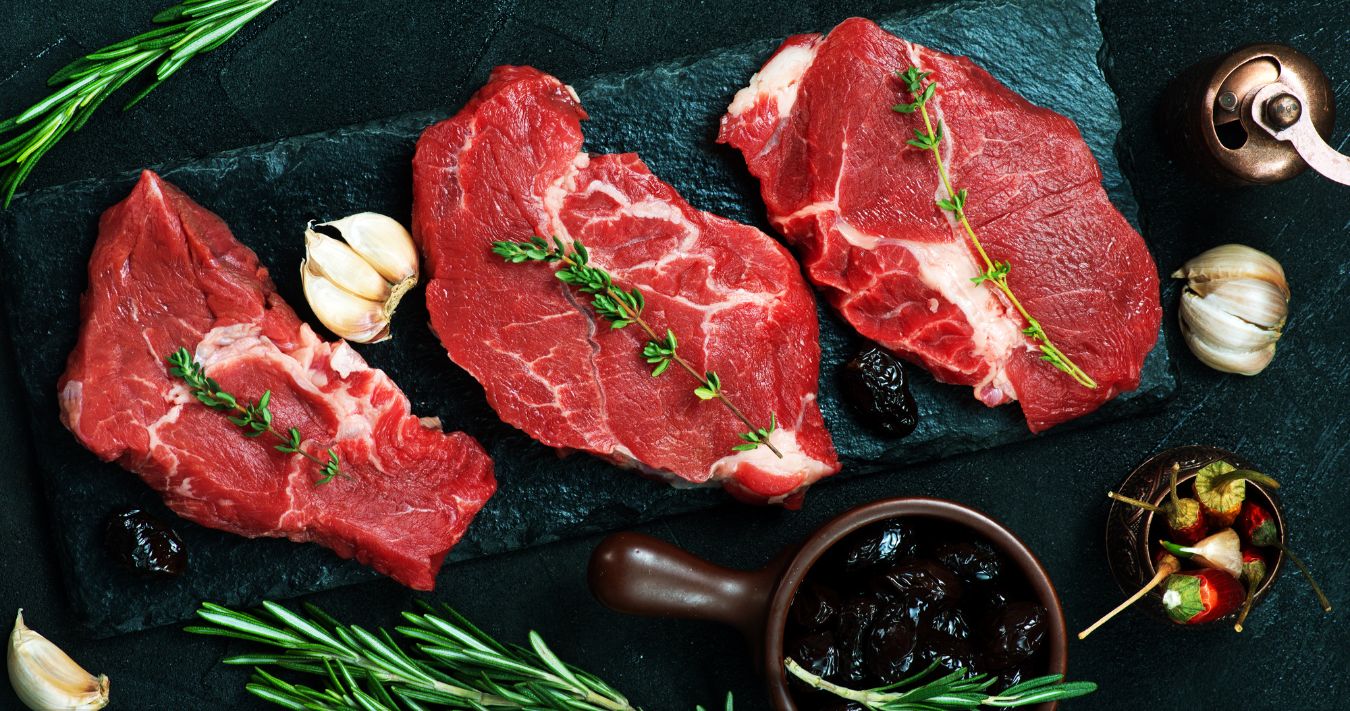Worst Foods for Prostate Health
While it is known that increasing age and genetic factors play significant roles in the development of prostate cancer, diet is potentially another factor that can influence prostate health. In particular, certain foods have been linked to an increased risk of prostate cancer.
Ten Worst Foods for Prostate Health
Red meat – eating a large amount of red meat is not good for prostate health, especially if it’s grilled or barbequed. Grilling or barbequing red meat produces heterocyclic amines and polycyclic aromatic hydrocarbons, which have been linked to cancer. Additionally, red meat is high in saturated fat, which has been associated with a higher risk of prostate cancer.
Processed meats, including hot dogs, sausages, bacon, etc. – processed meats contain a variety of preservatives and chemicals, including nitrates and nitrites, that can form cancer-causing compounds during the cooking process.
Dairy products – excessive consumption of dairy products, more than 5 servings per week, may increase your risk of prostate cancer. This may be due to the growth factors and hormones found in dairy products. Further, full-fat dairy products such as whole milk and full-fat cheese should be avoided due to their high saturated fat content, which as previously mentioned, has been linked to a higher risk of prostate cancer.
Fried foods, including fried chicken, French fries, etc. – fried foods contain possible cancer-causing compounds that form during high-temperature cooking. Fried foods are also high in saturated fats, which are associated with a higher risk of prostate cancer.
High glycemic carbohydrates, including cookies, cakes, white flour, white bread, etc. – these foods cause rapid spikes in your blood sugar levels, which may lead to higher insulin levels and an increase in the production of sex steroid hormones that have been linked to the development of prostate cancer.
Alcohol – excessive alcohol consumption can increase inflammation and cause hormonal imbalance in your body, which may influence the development of prostate cancer. Additionally, alcohol is a diuretic, which increases the amount of urine in your bladder causing it to constrict, making urination and relaxation of the prostate difficult. This can exacerbate symptoms of prostate problems, such as benign prostatic hyperplasia (BPH)
Caffeine – excessive caffeine consumption can irritate your bladder and prostate because it acts as a diuretic, similar to alcohol, which puts excess pressure on your bladder and prostate, and may exacerbate prostate enlargement symptoms.
Salt – excessive salt intake can contribute to high blood pressure and other health conditions that may influence prostate health.
Sugary Drinks, including soda, juice and energy drinks – these beverages can contribute to obesity and insulin resistance. Both of these conditions are risk factors for the development of prostate cancer.
Eggs – this superfood is high in choline which is needed for various functions in the body including memory, mood regulation and muscle control, but consuming an excessive amount of choline has been linked to an increased risk of prostate cancer.
Symptoms of Prostate Problems
Symptoms of prostate problems vary and may include:
- A frequent urge to urinate, especially at night.
- Blood in your urine or semen.
- A sensation of pain or burning during urination.
- Painful ejaculation.
- Urine dribbling.
- Frequent pain or stiffness in your lower back, pelvis, rectal area, hips or upper thighs.
If you experience any of these symptoms, speak to your medical provider to discuss your prostate health.
Prostate Protection
Worldwide, prostate cancer is the second most commonly diagnosed cancer and the fifth leading cause of cancer death in men. Estimates show that in 2020, there were approximately 1,414,000 new prostate cancer cases diagnosed and 375,304 deaths attributed to prostate cancer.
Consuming a healthy and balanced diet is essential for optimal prostate health. Avoiding the ten worst foods for prostate health, including foods that are high in saturated fats, sugars and cancer-causing compounds, can improve your prostate health and minimize your risk of developing prostate cancer.
Try incorporating a variety of fruits, veggies, whole grains and lean proteins into your diet to support your prostate health. Consuming a healthy diet is not only important for prostate health but for your overall health and well-being. Keep in mind that even small changes to your diet can have a significant impact on your health.
Check out some of the best foods for cancer.
Article Resources
- Diet May Affect Prostate Cancer Risk | Harvard T.H. Chan
- Foods You Should Avoid For Prostate Health + What To Have Instead | Dr. Will Cole
- 4 Types of Foods to Avoid for Prostate Health | Healthline
- Ten Worst Foods for Prostate Health | Robotic Oncology
- Prostate Cancer Incidence and Mortality: Global Status and Temporal Trends in 89 Countries From 2000 to 2019 | National Library of Medicine
- Prostate Problems | National Institute of Aging

